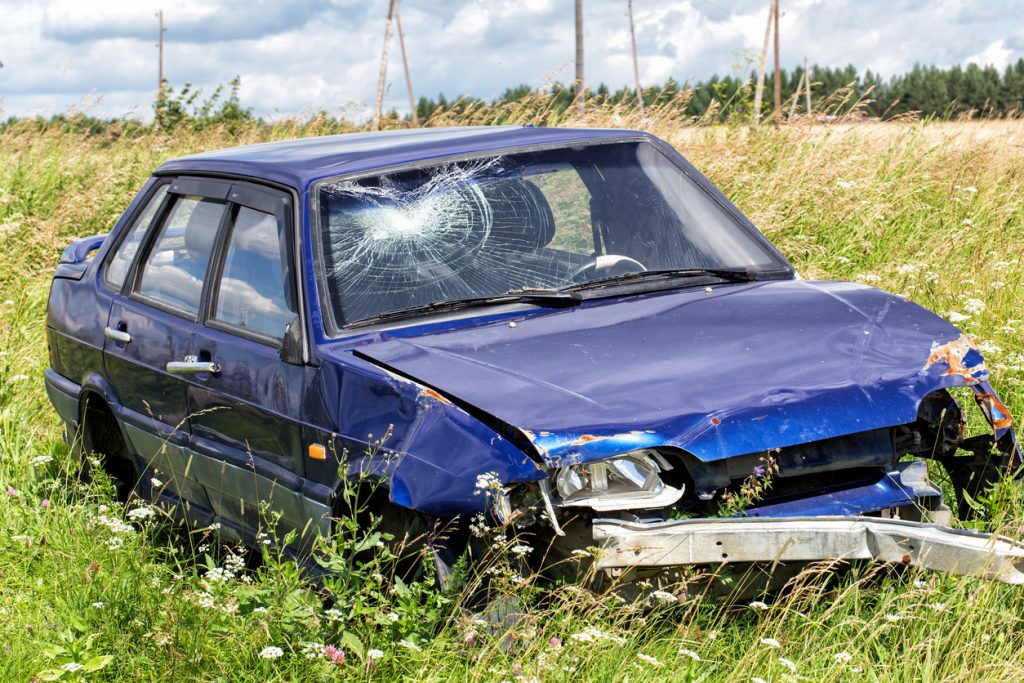Did you know that scrapping your car can help the environment?
In the UK, legal car scrappage centres must adhere to environmental regulations that includes the recycling of different parts and materials. For example, the existing metals that are recycled will prevent the need to mine for new mineral and metal resources.
Before regulations came into effect, car scrapping harmed the environment, as toxic fluids that were inside the car were not drained before they were compacted. This caused contamination to water systems, and the ground in scrap yards could be incredibly dangerous to people’s health.
Today, environmental regulations help to limit the toxicity of scrapping a car, and materials such as mercury are disposed of and recycled in the correct way. Car scrapping centres are also required to have appropriate equipment to handle hazardous materials and have a solid infrastructure to prevent the leakage of toxic materials.

What Happens To A Car When It’s Scrapped?
When a vehicle is scrapped, it will be collected and taken away to an Authorised Treatment Facility or ATF (which is simply the technical name for a licenced scrapyard). Once there, it will be stripped of any parts that are in good enough condition to be safely reused and then broken down (literally) to reduce it down to its original parts once again.
How Much Of A Scrapped Car Is Recycled?
By law, at least 95% of every vehicle’s total mass must be recycled. This legislation was introduced in order to reduce the environmental impact that the industry has on the planet as a whole, but also on the immediately local area surrounding each scrapyard.
Are There Regulations For Scrapping A Car?
Scrapping a car must be done at a registered scrap yard (known as an ATF) where it will be handled and dismantled by experience technicians who know exactly how to do the job safely. The parts themselves must be disposed of or processed properly too, allowing them to be effectively recycled or, if they must be truly scrapped, removed from the vehicle and taken out of harms way.
Further regulations involve the available payment methods when a car is sold as scrap or salvage. As of 2013, it is illegal to pay cash for a vehicle and all transactions should be made via bank transfer. This was introduced to combat a growing car theft problem, preventing criminals from simply stealing a car and scrapping it without creating an electronic paper trail.
Benefits Of Selling A Car For Scrap
There are several benefits involved with scrapping your car:
- Quick sale: Not only will you receive a great offer that’s in line with the ever-changing market value of scrap metal, the sale could be completed within a matter of a couple days
- Guaranteed interest: Selling your old, broken or crashed car could seem hopeless, but those are exactly the types of vehicles that scrap and salvage dealers are interested in
- Environmentally friendly: Scrapping guarantees that at least 95% of your car will be recycled, meaning that you won’t need to worry about any negative impacts on the planet that your rusting, degrading vehicle could have
- Save money: Not only are you going to make money by selling your car, you’ll also save money in the long run – you won’t need to pay for fuel, tax or insurance again!
- Upgrade: Or, if you do need a vehicle, you can put the money you earn towards something newer and nicer
Scrap Parts Can Be Recycled
When it comes to scrapping your car, it’s best to shop around for the best deal. There are several factors that will influence the amount you will get for scrapping a car, but if all the parts are intact, you will certainly get more than if you remove the parts. Some of them can be more valuable than you think.
This is another reason car scrappage is good for the environment. A whole car can be recycled and individual parts re-used. From tyres and mirrors, to batteries and radiators, many of the parts in your car could have the potential to live on in a new body, saving them from going to waste. This then has a knock-on effect, meaning less of that material needs to be made.
To create steel for new cars, large amounts of coal is burned, which emits greenhouse gases that cause pollution. If we choose to recycle and reduce the amount of steel that needs to be produced, the impact on the environment will be significantly less.
How Does A Scrappage Scheme Work?
Many manufacturers have introduced offering scrappage trade-in incentives to encourage owners to upgrade to a less polluting model. There is also the ultra-low emission zone (ULEZ) which came into force in April this year in London. This will charge drivers if their diesel vehicle does not meet the Euro 6 standards, or their petrol vehicle does not meet the Euro 4 standards, to drive in a particular zone. These designated zones will be expanding in coming years.
To combat this, there has been a new car scrappage scheme put in place for low income or disabled drivers living in London. This will allow them to claim money back for scrapping their car if it doesn’t meet ULEZ standards and upgrade to a model that is less polluting.
How To Scrap Your Car
If you’re looking to scrap your car and help the environment by recycling as many parts as possible, look no further than Scrap Car Comparison.
Our database of trusted and certified scrappage buyers will ensure you get the very best deal for your vehicle, whilst making sure the process is easy and hassle free. Get in touch today to get a quote and find out how much your vehicle is worth.


